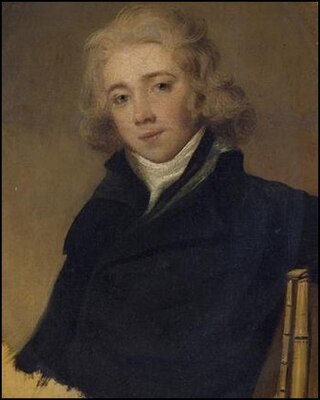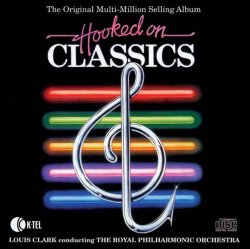Related Research Articles

Edvard Hagerup Grieg was a Norwegian composer and pianist. He is widely considered one of the leading Romantic era composers, and his music is part of the standard classical repertoire worldwide. His use of Norwegian folk music in his own compositions brought the music of Norway to fame, as well as helping to develop a national identity, much as Jean Sibelius did in Finland and Bedřich Smetana in Bohemia.
In musical terminology, tempo, measured in beats per minute, is the speed or pace of a given composition, and is often also an indication of the composition's character or atmosphere. In classical music, tempo is typically indicated with an instruction at the start of a piece and, if a specific metrical pace is desired, is usually measured in beats per minute (BPM). In modern classical compositions, a "metronome mark" in beats per minute, indicating only measured speed and not any form of expression, may supplement or replace the normal tempo marking, while in modern genres like electronic dance music, tempo will typically simply be stated in BPM.

The Piano Concerto in A minor, Op. 16, composed by Edvard Grieg in 1868, was the only concerto Grieg completed. It is one of his most popular works, and is among the most popular of the genre. Grieg, who was only 24 years old at the time of the composition, had taken inspiration from Robert Schumann's piano concerto (Op.54), also in A minor.

Hugo Emil Alfvén was a Swedish composer, conductor, violinist, and painter. Alfvén was one of Sweden's principal composers. His "Swedish Rhapsody”, written when he was 31, is still one of the best-known pieces of Swedish music. After extensive European travels to develop his musical skills, Alfvén taught composition, before conducting choirs and orchestras. In 1954 he made the first Swedish classical stereo recordings. Hugo Alfvén’s extensive musical archive is held at Uppsala University, where he was music director for twenty nine years.
The Young Person's Guide to the Orchestra, Op. 34, is a 1945 musical composition by Benjamin Britten with a subtitle Variations and Fugue on a Theme of Purcell. It was based on the second movement, "Rondeau", of the Abdelazer suite. It was originally commissioned for the British educational documentary film called Instruments of the Orchestra released on 29 November 1946, directed by Muir Mathieson and featuring the London Symphony Orchestra conducted by Malcolm Sargent; Sargent also conducted the concert première on 15 October 1946 with the Liverpool Philharmonic in the Philharmonic Hall, Liverpool, England.
Songs Without Words is a series of short lyrical piano works by the Romantic composer Felix Mendelssohn written between 1829 and 1845. His sister, Fanny Mendelssohn, and other composers also wrote pieces in the same genre.

The cello suites by Benjamin Britten are a series of three compositions for solo cello, dedicated to Mstislav Rostropovich. The suites were the first original solo instrumental music that Britten wrote for and dedicated to Rostropovich, but Britten had earlier composed a cadenza for Joseph Haydn's Cello Concerto in C major, for Rostropovich, in 1964. Rostropovich gave the first performances of each work, and recorded Suite No. 1 and 2 commercially.

The Wand of Youth Suites No. 1 and No. 2 are works for orchestra by Edward Elgar, first performed in 1907 and 1908 respectively. The titles Elgar gave them were, in full: The Wand of Youth First Suite, Op. 1a (1869–1907) and The Wand of Youth Second Suite,. The music was drawn from material written by the composer in his youth and orchestrated forty years or so later.

Rosamunde, Fürstin von Zypern is a play by Helmina von Chézy, which is primarily remembered for the incidental music which Franz Schubert composed for it. Music and play premiered in Vienna's Theater an der Wien on 20 December 1823.

Hyacinthe Jadin was a French composer who came from a musical family. His uncle Georges Jadin was a composer in Versailles and Paris, along with his father Jean Jadin, who had played bassoon for the French Royal Orchestra. He was one of five musical brothers, the best known of whom was Louis-Emmanuel Jadin.
Dmitry Kabalevsky's Piano Sonata No. 2 in E-flat major, Op. 45 was composed in 1945 and dedicated to Emil Gilels. It is the most vast and dramatic of Kabalevsky's three sonatas. A War Sonata such as Sergei Prokofiev's trilogy, its first movement has been compared to that of Dmitri Shostakovich's Symphony No. 7.
Felix Mendelssohn wrote thirteen string symphonies between 1821 and 1823, when he was between 12 and 14 years old.. These symphonies were tributes to Classical symphonies especially by Joseph Haydn, Carl Philipp Emanuel Bach, and Wolfgang Amadeus Mozart.

The Études-Tableaux, Op. 33, is the first of two sets of piano études composed by Sergei Rachmaninoff. They were intended to be "picture pieces", essentially "musical evocations of external visual stimuli". But Rachmaninoff did not disclose what inspired each one, stating: "I do not believe in the artist that discloses too much of his images. Let [the listener] paint for themselves what it most suggests." However, he willingly shared sources for a few of these études with the Italian composer Ottorino Respighi when Respighi orchestrated them in 1930.

Hooked on Classics is a classical crossover album recorded by the Royal Philharmonic Orchestra conducted by Louis Clark, released in 1981 by K-tel and distributed by RCA Records, part of the Hooked on Classics series. It was produced by Jeff Jarratt and Don Reedman.
Dmitri Kabalevsky composed two cello concertos. He is primarily a pianist and composer for piano. Kabalevsky has a career as a music educator, composer and member of the International Society for Music Education (ISME). Kabalevsky's works have been regarded unfavorably by many because of his associations and allegiance with the Communist Party and is referred to by some as a "Soviet Composer", who was "self-serving, sly, and opportunistic to the extreme." However, his compositions including the two cello concertos are used by various students around the world to learn technique.
The Violin Sonata in B minor, P 110, is a sonata for violin and piano by Italian composer Ottorino Respighi, completed in 1917. It is one of Respighi's major large-scale chamber works.
Jacques Ibert's Divertissement is a six-movement suite for chamber orchestra adapted by the composer in 1930 from incidental music he had written for a production of Eugène Labiche's stage comedy The Italian Straw Hat in 1929. It is among Ibert's best-known works and has been recorded many times.
References
- ↑ NY Times, 18 February 1987
- 1 2 Classical Archives
- ↑ "カバレフスキー:ピアノための組曲《道化師》 (Kabalevsky: The Comedians Suite for Orchestra, Piano Arrangement)" (in Japanese). 全音楽譜出版社 . Retrieved 2019-05-30.
- 1 2 The Gramophone, December 1996
- 1 2 New Millennium Records